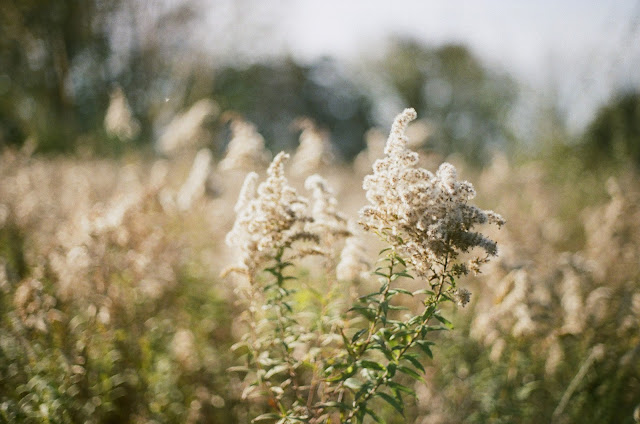I've always dreamt of my own home.This is a common dream. In my house, I would grow a vegetable garden and plant fruit trees and native plants. I would have a compost bin full of rich soil in the backyard and water barrels beneath the gutters. I am thirty-one now and the dream has evolved. It's a little less romantic but now I would like to have a house that is well insulated, where air leaks are sealed, where I can electrify everything and power the house with solar.
The idea would be to live without harm, to live in relation with the earth's limits. It's a goal that probably stems from deep-seated anxiety or Catholic guilt. It's also a goal that just makes me happy.
I've been intrigued by homesteading since I was young, and now it's evolved more into a passion for green building. Last year in the pandemic, I learned about R values and building science in Martin Holliday's Musings of an Energy Nerd (I like the idea he spurred of the "Pretty Good House"). This year, I have found myself watching webinars (!) in my free time on green building: here, here, here, and here.Meanwhile, I am a renter. A renter who finds herself moving quite a bit, who hasn't yet figured out where to put down roots and grow that vegetable garden.
The key thing I tend to forget when I am thinking about this dream is the financial part. All of this is fun to daydream about, but the reality is that it's expensive. Home prices have skyrocketed in the last few years in places I would like to live and so if I am ever able to afford a house, I most likely will not have money left over to pay for an induction stove, a new heat pump, electric water heater and solar panels.
This is the reality of most all homeowners though, I imagine. Home repairs are costly and done over time. I'm not any different.
The thing is, even if I were to finally have a house of my own and in time, convert it to an energy-efficient home where I grow my own food (with the house being an engine of production, rather than an engine of consumption), I would still only be a drop in the bucket. The house would be personally satisfying but in reality, it would just be one house with a smaller footprint when what we need is everyone to reduce that footprint on a national scale.
This point has been made and argued a million times over. Do individual actions make a difference? And the most satisfying answer I have found to this question is from an interview with writer Eula Biss. The interview, interestingly enough, is about vaccines but it is also about how public health has a lot of commonalities with climate change too.
"There's this amazing fact that's a little mind boggling to me," Eula Biss says. "You're more likely to catch an infectious disease if you're a vaccinated person in a totally unvaccinated community than if you're an unvaccinated person in a totally vaccinated community." Pause. I'll let you read that over again. "Vaccination is not all that effective if only one person does it, but it's incredibly effective if nearly everyone does it."
"The challenge of vaccination has some interesting commonalities with the challenge of addressing climate change," she goes on to say. "I was in South Africa last year, when Cape Town was approaching Day Zero -- they were going to run out of water entirely. But Day Zero didn't happen, because the city so effectively reduced their water usage. And that was because of collective action. People were not flushing their toilets, or were flushing them every seven to nine uses and using reserve shower water to flush."
"One person doing that doesn't actually make a difference at all, right? Like I can not flush my toilet, and it will have zero effect. Just as one person vaccinating really doesn't do anything meaningful for disease worldwide. But everyone in a whole city not flushing their toilets has a real, measurable effect."
The ah-ha moment is that individual actions work when they're done on a collective scale. Like vaccines! Like masks! And well, yes, I know... it's a bit sad to see how that message resonates with a portion of the American population.
Policy changes are not as exciting to talk to about as house buying but they do give me hope. They feel like concrete steps toward the collective action we need. Since delving into environmental activism four-plus years ago, I have seen real changes happen, and they've all happened from policy (from the government regulating, subsidizing, and incentivizing behaviors).
I've witnessed a community in Millcreek, Utah pack a city hall room, sit through multiple city hall meetings, and demand that their legislators commit to go 100% renewable by 2032 (the legislators after some time, said yes). I have witnessed a coalition of cities in Utah sign a bill that demands that Rocky Mountain Power powers their municipalities with renewable energy by 2032. I have seen solar farms installed, finally, because of this work.
In my home state of Illinois, I have seen legislation (first the Future Energy Jobs Act and now the Climate and Equitable Jobs Act) bring solar to a state that no one would ever think would be a great candidate for solar. These bills seem ineffective, but they are not. Now that I am back in Chicago, I see solar everywhere thanks to the incentives put in place from the new legislation, and when I left here four years ago for Utah, that was not the case.
This fall, I spent my time calling my senators to pass Build Back Better, the climate legislation we need on a federal scale. It is still sadly stalled, DOA because of one man, and the loss is unbearable. The hard part about this work is, we have to rely on people in power, rather than just focusing on our own self. That means I have to show up to community meetings. I have to call and write and sign petitions to hold people to account (wouldn't it be nice if getting them to work in our best interests wasn't so hard?).
Living within the climate space, I am constantly reminded that we have about ten years to turn this ship around, and the reality is that it might take another year to get a down payment ready. But the really interesting thing to me is that because I haven't been able to put my focus and attention into caring for my own home, making the changes I want to see in my own dwelling, I have had to look for another outlet. I had to channel that energy somewhere, and so in the past few years, I channeled it into activism.
When I look back, I actually find that I have been more effective as an environmentalist as a renter, than a homeowner. Because as a renter, I had no choice but to focus on my community rather than my own plot of land.
Social media loves the individual action.
I follow a zero-waste brand online and while I don't knock the movement, scrolling past the posts do make me squirm a little. There is a call to buy a lot of trendy, reusuable things and underneath it all, a sense that that alone will save us. This type of environmentalism makes me uneasy but I do get it. It's easy to glamorize. It's shiny and speaks to a side of ourselves that I don't think will ever fully subside. I'm human and a very imperfect environmentalist. I like things too.
While focusing on lifestyle changes can be productive, the posts mainly make me want to scream because they put the onus on individual choices and fail to mention anything remotely political. The world will change, I thought, not when we focus on lifestyle choices alone but when we spend some of our energy collectively pressuring the government and corporations to stop pursuing destructive and unsustainable practices.
And this (unfortunately to say) is hard work.
I thought of this a lot when I was reading Jia Tolentino's "Trick Mirror" this summer. While reading, I realized that the tendency to glamorize the individual action and downplay collective organizing has been done in the feminist space as well.
In her essay, "The Story of a Generation in Seven Scams", Tolentino talks about girlbosses and what she calls "the social media scam". She investigates the power women portray on social media and writes, "A politics built around getting and spending money is sexier than a politics built around actual politic."
"[With white feminism], instead of expanded reproductive protections and equal pay and federally mandated family leave and subsidized childcare and a higher minimum wage, we got the self-congratulatory empowerment feminism that corporations can get behind... We got a bottomless cornucopia of privatized non-solutions: face serums, infrared saunas, wellness gurus like Gwenyth Paltrow."
It made me laugh at the time but it's also true. We have serums (sold by women so feminist) instead of subsidized childcare. Great. When I go online, I'm often sold something, at times it will even be sold as being aligned with my feminist or environmentalist values. Less often will I go online and see actual political action (though depends on who you follow).
Jia Tolentino puts it succinctly: "The problem is that a feminism that prioritizes the individual will always, at its core, be at odds with a feminism that prioritizes the collective."
This line made me think of my dream of the house. I know, it's okay to dream. It's okay to want to house, but I remind myself often, an environmentalism that prioritizes the individual will always be at odds with an environmetalism that prioritizes the collective. In other words, if I really want to see our way of life drastically change and shift toward a more sustainable model (and I do!), I won't get it by prioritizing myself alone. I have to think of my neighbor and my community too.

I get it. The reason actual political action or organizing isn't glamorized is because it's hard to glamorize. It's slow work. It's unpaid work. It sometimes leads to amazing victories, but only sometimes.
After Trump was elected, I started getting involved with a local environmental organization and to be frank, the meetings were chaotic. Occassionally, they were a balm. Occasionally they were invigorating, being surrounded by people who cared about the same things that I do but often, it just meant that I spent my free time on Zoom after work and listened to people talk over each other or get sidetracked. And yet, in organizing, I have been able to make bigger changes than I have ever thought possible (see here and here).
Recently, I read a tweet that said, "The revolution will be imperfect" and it gave me a sigh of relief. Once I realized that activist spaces and organizing meetings wouldn't be perfect, that they wouldn't be optimized and efficient, I breathed easier. It's okay because it's numbers that we need. Organizing is a team project, which I'll admit, is my least favorite kind. But it has to be a team project. There is no other way. We need the most amount of people making the loudest noise possible.
All of this makes me think of Eula Biss' words once again (I know I am quoting a lot of people here but these thoughts have been swirling around in my head for a while). I keep coming back to a quote from her that has stayed with me since I first read it, that shifted my view on everything in one small paragraph. In her book "On Immunity" Biss talks about a realization she had when reading about the environmentalist Rachel Carson, saying:
"If one feels at least partly responsible for one's own health ... but understands one's body as a complex system linked to other complex systems, including the community and the environment, the task of controlling all the factors that might affect one's health becomes overwhelming."
"Feeling responsible for everything and powerless at the same is a good description, I think, of the emotional state induced by citizenship in this country," Biss writes.
These words hit me when I read them. Feeling responsible for everything and powerless at the same time is very much my state of being.
"Our representative democracy endows us with empowered powerlessness. This is a problem of governance, but it is also, as Rachel Carson would suggest, something else. 'For each of us, as for the robin in Michigan or the salmon in the Miramichi ... this is a problem of ecology, of interrelationships, of interdependence.' "
Ah yes, interdependence. The missing puzzle piece. The thing we don't like to admit. The thing the pandemic and climate change (and the robins and the salmon) keep calling to mind.
Over the past few years, I have found that working on systematic change is an ask that puts me face to face with my own powerlessness. There is no alternative though if I am concerned about my own health or my neighbor's. I am one person living amongst others in an interconnected ecosystem. I am deeply affected by what is beyond myself and so I must look outward, at my environment and my community, but also do so humbly, with, as Biss writes, a sense of empowered powerlessness.
It can be freeing, this realization. That I have power but that power will always be finite. That I can't do it all. That it wasn't designed that way.
All of this to say, I do still hope I achieve my dream one day. A little homestead somewhere with a garden out my door, that will hopefully nourish me even as our world changes. But I know that the house won't save me. I'm self-aware enough to know that if the ship goes down, it doesn't matter if I have solar on my roof or a garden in my backyard, I will go down too. I can't do everything. I'm not all that skilled.
The interesting thing I've learned now is that I know that the house also won't save us. That can only be done in community, through very banal things like legislation and policy and incentives on a national level.
So yes, I will garden, but I will show up for the larger struggle too. Here's to hoping (and doing and resting and playing too).






























